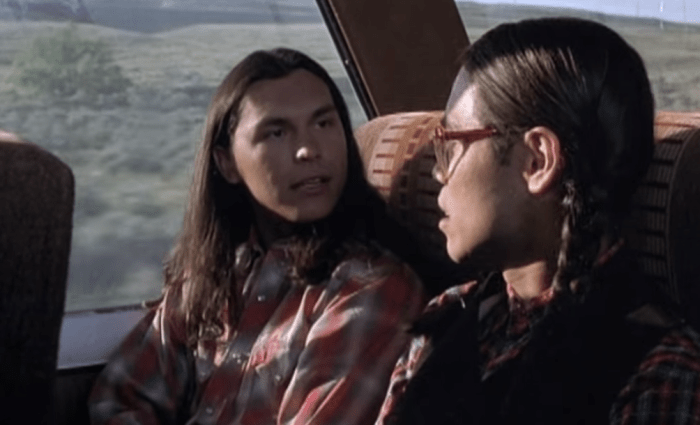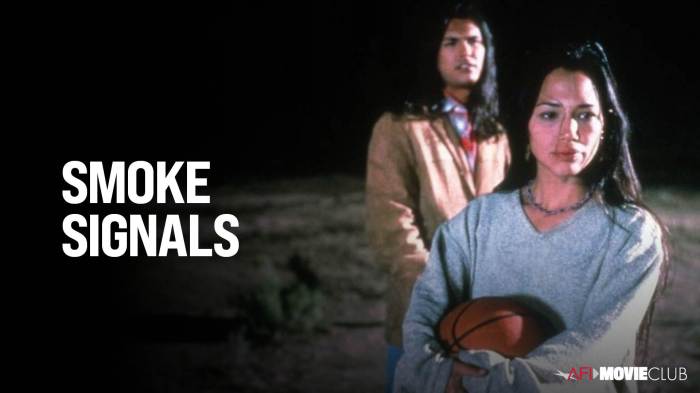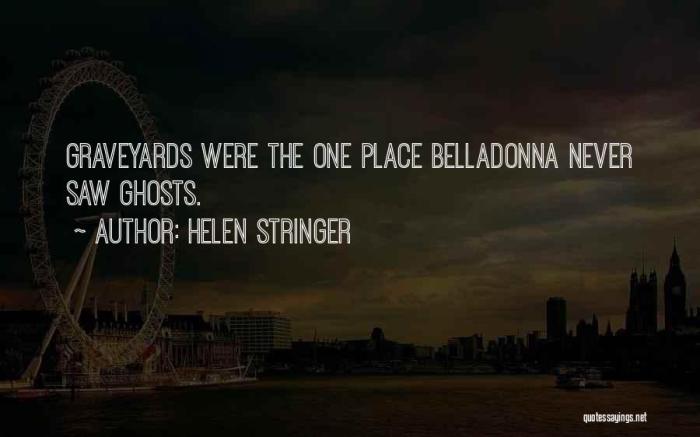Quotes from the movie smoke signals – Unveiling the profound impact of cinema, this exploration delves into the iconic quotes from the groundbreaking film “Smoke Signals.” Through a captivating narrative, we embark on a journey that illuminates the complexities of Indigenous experiences, social commentary, and cultural identity.
As we delve into the film’s poignant dialogue, we uncover the characters’ innermost thoughts and motivations, revealing the complexities of human nature. The film’s skillful use of symbolism and visual elements further enhances the impact of these memorable lines, leaving an enduring mark on the hearts and minds of viewers.
Introduction
The movie “Smoke Signals” is a 1998 film that tells the story of two Indigenous men, Victor and Thomas, who travel from the Coeur d’Alene reservation in Idaho to Phoenix, Arizona, to retrieve the ashes of Victor’s father. Along the way, they encounter various obstacles and challenges, but they also learn more about themselves and their culture.
“Smoke Signals” is a significant film in Indigenous cinema because it was one of the first films to be written, directed, and produced by Indigenous people. It is also notable for its realistic portrayal of Indigenous life and its exploration of themes such as identity, loss, and healing.
Significance in Indigenous Cinema
“Smoke Signals” is a significant film in Indigenous cinema for several reasons. First, it is one of the first films to be written, directed, and produced by Indigenous people. This is important because it gives Indigenous people a voice in the telling of their own stories.
Second, the film portrays Indigenous life in a realistic way. It does not shy away from the challenges that Indigenous people face, but it also shows the strength and resilience of Indigenous communities. Third, the film explores important themes such as identity, loss, and healing.
These themes are relevant to all people, regardless of their background.
Memorable Quotes

The movie “Smoke Signals” features several memorable quotes that capture the film’s themes of identity, loss, and healing. These quotes resonate with audiences due to their poignant and thought-provoking nature.
Significant Quotes
- “You can’t go home again, because home has changed.”
- “I’m not a half-breed. I’m all breed.”
- “Sometimes, you have to go through hell to get to heaven.”
- “The world is a very small place. And the people in it are even smaller.”
- “Sometimes, the best way to say something is not to say it at all.”
This quote, spoken by Victor Joseph, highlights the idea that returning to one’s roots can be a bittersweet experience. The passage of time and personal growth can make it difficult to fully reconnect with the past.
Thomas Builds-the-Fire’s declaration challenges the notion of racial categorization. It emphasizes the complex and multifaceted nature of identity, rejecting the idea of being defined by societal labels.
This quote, uttered by Arnold Joseph, reflects the film’s portrayal of the healing process. It suggests that overcoming adversity can lead to personal growth and redemption.
Victor Joseph’s observation captures the interconnectedness of human lives. It emphasizes the impact that our actions can have on others, even those we may not realize.
Arnold Joseph’s words highlight the power of silence. They suggest that there are times when it is more effective to convey emotions or messages through nonverbal means.
Character Analysis through Quotes: Quotes From The Movie Smoke Signals

The characters in “Smoke Signals” are complex and well-developed, and their personalities and motivations are revealed through their dialogue. The film’s dialogue is naturalistic and believable, and it captures the rhythms and cadences of real speech.
One of the most important characters in the film is Victor Joseph, a young Native American man who is struggling to come to terms with his identity. Victor is a talented artist, but he is also haunted by the death of his father.
Through his dialogue, we learn that Victor is a sensitive and intelligent young man who is trying to find his place in the world.
Victor’s Search for Identity
One of the most memorable quotes from the film comes from Victor. He says, “I’m not sure who I am anymore. I’m not sure if I’m Indian or white. I’m not sure if I’m anything.” This quote reveals Victor’s struggle with his identity.
He is trying to figure out who he is and where he belongs.
Another important character in the film is Thomas Builds-the-Fire, an elderly Native American man who is Victor’s mentor. Thomas is a wise and compassionate man who helps Victor to understand his culture and his heritage. Through his dialogue, we learn that Thomas is a strong and proud Native American who is committed to his community.
Thomas’s Wisdom and Guidance
One of the most memorable quotes from the film comes from Thomas. He says, “The only way to find your way is to lose yourself.” This quote reveals Thomas’s wisdom and his understanding of the human condition. He knows that in order to find our true selves, we must be willing to let go of the things that hold us back.
Cultural Themes and Symbolism

Smoke Signalsexplores profound cultural themes through the lens of Native American experiences. It deftly weaves symbolism into its narrative to convey deeper meanings and perspectives, shedding light on the complexities of identity, cultural heritage, and the search for connection.
Identity and Cultural Heritage
The film delves into the struggle of Native Americans to reconcile their cultural heritage with the dominant society. The characters’ experiences reflect the ongoing challenges of preserving cultural traditions while navigating a rapidly changing world. Quotes such as:
“I’m not an Indian. I’m a Spokane Indian.”
Highlight the importance of tribal identity and the complexities of navigating multiple cultural spaces.
Historical Trauma and Healing
Smoke Signalsconfronts the historical trauma inflicted upon Native American communities. The film explores the lingering effects of colonization, assimilation, and the loss of cultural practices. Quotes like:
“We were taught to be ashamed of who we are.”
Reflect the pain and resilience of characters as they grapple with the legacy of the past.
The Power of Storytelling
The film emphasizes the transformative power of storytelling as a means of preserving cultural identity and healing historical wounds. The characters find solace and connection through sharing their stories, creating a bridge between the past and the present. Quotes such as:
“Stories are the only way we can hold onto who we are.”
Underscore the significance of storytelling in shaping and transmitting cultural knowledge.
Symbolism
Smoke Signalsemploys symbolism to convey deeper meanings. The basketball game, for instance, represents the competitive spirit and the challenges of balancing individual goals with collective identity. The powwow serves as a symbol of cultural renewal and the celebration of Native American traditions.
The recurring motif of smoke symbolizes both the destructive effects of trauma and the healing power of connection.
Social and Political Commentary
Smoke Signalsdeftly employs satire, humor, and storytelling to highlight the social and political challenges faced by Indigenous communities.
Humor as Resistance
The film’s use of humor provides a subversive form of resistance against stereotypes and oppression. Through comedic moments, Smoke Signalschallenges the dominant narratives that marginalize Indigenous voices.
- Victor’s deadpan delivery and Thomas’s awkwardness subvert expectations of stoic Native Americans, creating a humorous contrast.
- The scene where Victor and Thomas dress up as cowboys to infiltrate a rodeo playfully satirizes the appropriation of Indigenous culture.
Storytelling as Empowerment
Smoke Signalsemphasizes the power of storytelling in preserving Indigenous culture and challenging societal norms.
- The film’s framing device, where Victor recounts his journey to Thomas, demonstrates the importance of passing down stories.
- Victor’s stories about his father, Arnold, challenge the stereotypes of absent Native fathers and explore the complexities of intergenerational trauma.
Critique of Colonialism
The film also critiques the legacy of colonialism and its impact on Indigenous communities.
- The character of Arnold, a Vietnam veteran, embodies the generational effects of colonialism on Native Americans.
- The scene where Victor and Thomas visit the Indian boarding school exposes the horrors of the assimilationist policies that sought to erase Indigenous cultures.
Visual and Stylistic Elements

The visual and stylistic techniques employed in “Smoke Signals” are carefully orchestrated to enhance the impact of the quotes and create a memorable cinematic experience. These elements work in tandem to convey emotions, establish atmosphere, and reinforce the film’s themes.
Cinematography
The film’s cinematography is characterized by its use of long, sweeping shots that capture the vast and desolate landscapes of the American West. These shots evoke a sense of isolation and loneliness, mirroring the emotional journeys of the characters.
Editing
The editing in “Smoke Signals” is fluid and rhythmic, creating a seamless flow between scenes. The juxtaposition of different shots and sequences often emphasizes the emotional connections between characters or highlights the contrasts between their experiences.
Sound Design
The sound design in the film is equally evocative, using ambient sounds and music to create a rich and immersive soundscape. The use of silence is also notable, emphasizing the characters’ inner struggles and the weight of their words.
Impact and Legacy
Smoke Signalshas had a profound impact on Indigenous representation in film and beyond, becoming a landmark moment in the history of Indigenous cinema. It shattered stereotypes, humanized Indigenous characters, and provided a platform for Indigenous voices to be heard.
Critical Reception
Smoke Signalsreceived widespread critical acclaim upon its release, earning praise for its authentic storytelling, poignant performances, and groundbreaking portrayal of Indigenous life. It won numerous awards, including the Sundance Film Festival Audience Award and the Independent Spirit Award for Best First Feature.
Legacy in Popular Culture, Quotes from the movie smoke signals
Smoke Signalshas had a lasting legacy in popular culture. It has been credited with inspiring a new generation of Indigenous filmmakers and actors and has helped to increase visibility and representation of Indigenous peoples in the media. The film’s themes of identity, loss, and healing continue to resonate with audiences today.
Clarifying Questions
What is the significance of the quote, “The only way to survive is to remember”?
This quote highlights the importance of preserving cultural heritage and traditions as a means of resilience and survival for Indigenous communities.
How does the film use humor to convey social commentary?
The film employs satire and witty dialogue to address serious issues such as racism, stereotypes, and the marginalization of Indigenous peoples.
What is the symbolism behind the “smoke signals” in the film?
The smoke signals represent both traditional communication methods and the need for Indigenous voices to be heard and understood in contemporary society.